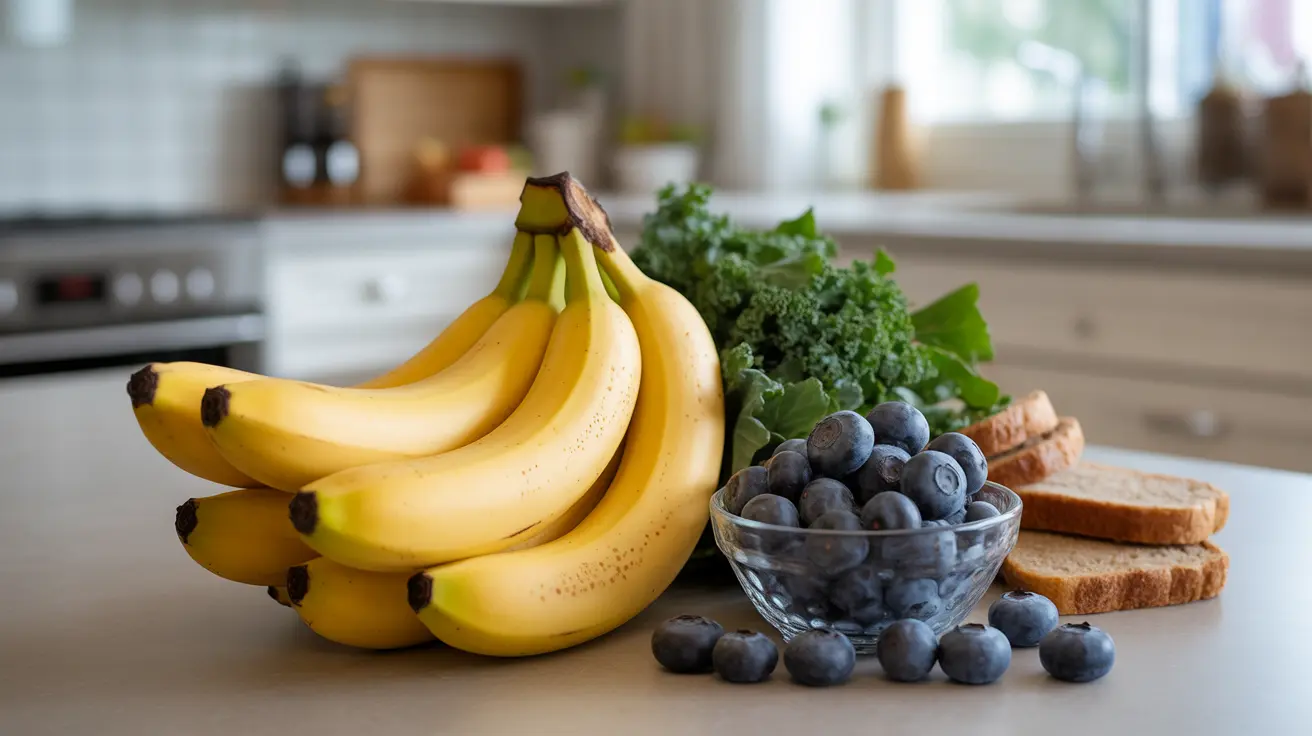For individuals managing gout, understanding which foods can help or harm their condition is crucial. Bananas have garnered attention as a potentially beneficial fruit for gout sufferers, thanks to their nutritional profile and anti-inflammatory properties. This comprehensive guide examines the relationship between bananas and gout management, backed by current research and dietary recommendations.
Understanding Gout and Diet's Role
Gout is a form of inflammatory arthritis characterized by sudden, severe attacks of pain and swelling in joints, particularly the big toe. The condition occurs when excess uric acid crystallizes in joints, leading to inflammation. While medication plays a primary role in treatment, diet significantly influences gout management and attack prevention.
Benefits of Bananas for Gout Management
Bananas offer several properties that may benefit individuals with gout:
- Low purine content
- Rich in potassium
- Contains vitamin C
- Natural anti-inflammatory compounds
- High fiber content
These nutritional characteristics make bananas a smart choice for those following a gout-friendly diet. The fruit's low purine content is particularly important, as purines break down into uric acid in the body.
The Vitamin C Connection
Bananas contain vitamin C, which research suggests may help lower uric acid levels. While bananas aren't the highest source of vitamin C, they contribute to your daily intake alongside other fruits and vegetables. Regular consumption of vitamin C-rich foods may help reduce the frequency of gout attacks.
Incorporating Bananas into a Gout-Friendly Diet
Adding bananas to your diet can be part of a broader gout management strategy. Here are some effective ways to include them:
- Morning smoothies with low-fat milk
- Mid-day snack between meals
- Pre-workout energy boost
- Alternative to high-purine desserts
Additional Low-Purine Foods to Consider
While bananas are beneficial, they should be part of a varied, low-purine diet. Other recommended foods include:
- Most fruits and vegetables
- Whole grains
- Low-fat dairy products
- Eggs
- Plant-based proteins
Frequently Asked Questions
Are bananas good for people with gout?
Yes, bananas can be beneficial for people with gout. They are low in purines, contain vitamin C, and offer anti-inflammatory properties that may help manage gout symptoms. Their high potassium content also supports overall joint health.
How does a low-purine diet help manage gout symptoms?
A low-purine diet helps reduce uric acid production in the body, as purines are converted to uric acid during digestion. By limiting purine intake, you can help prevent uric acid buildup and reduce the risk of gout attacks.
Can vitamin C found in foods like bananas help prevent gout attacks?
While bananas contain moderate amounts of vitamin C, research suggests that vitamin C can help lower uric acid levels and potentially reduce gout attack frequency. However, it's best to obtain vitamin C from various dietary sources for maximum benefit.
What are some other low-purine foods that can lower uric acid levels?
Several low-purine foods can help manage uric acid levels, including cherries, berries, vegetables, whole grains, and low-fat dairy products. These foods can be combined with bananas as part of a comprehensive gout management diet.
How important is diet in managing gout, and is it enough to control symptoms without medication?
While diet plays a crucial role in gout management, it typically isn't sufficient as a standalone treatment for most people with gout. Diet should be viewed as part of a comprehensive treatment plan that may include medication, lifestyle changes, and regular medical supervision.




